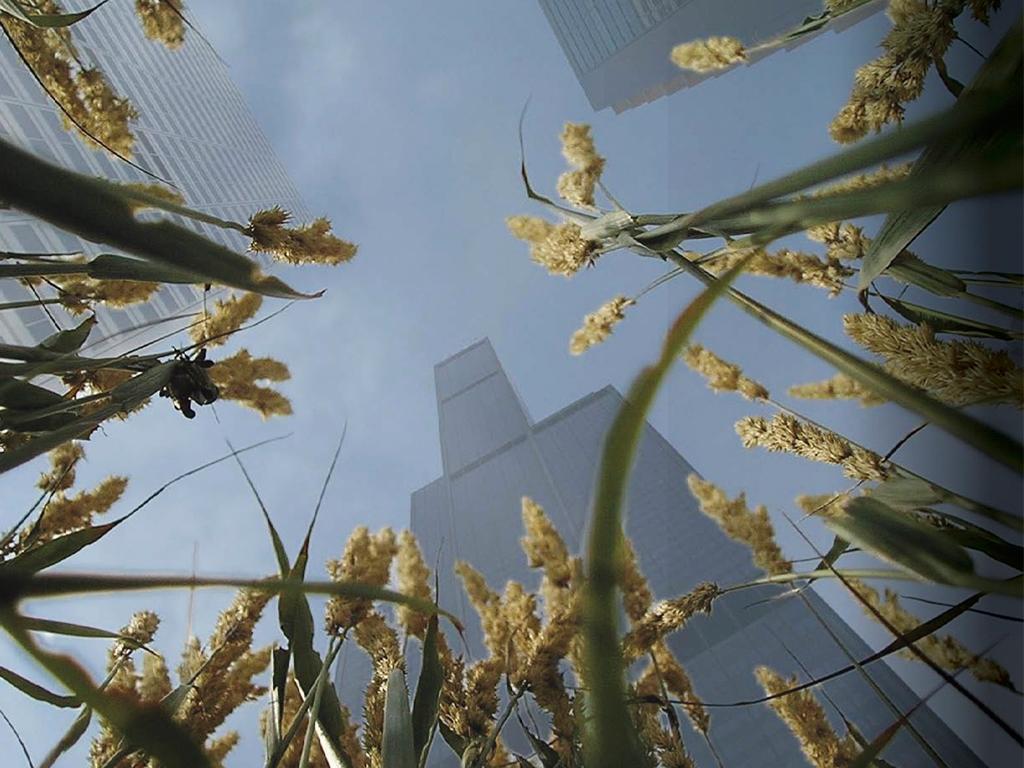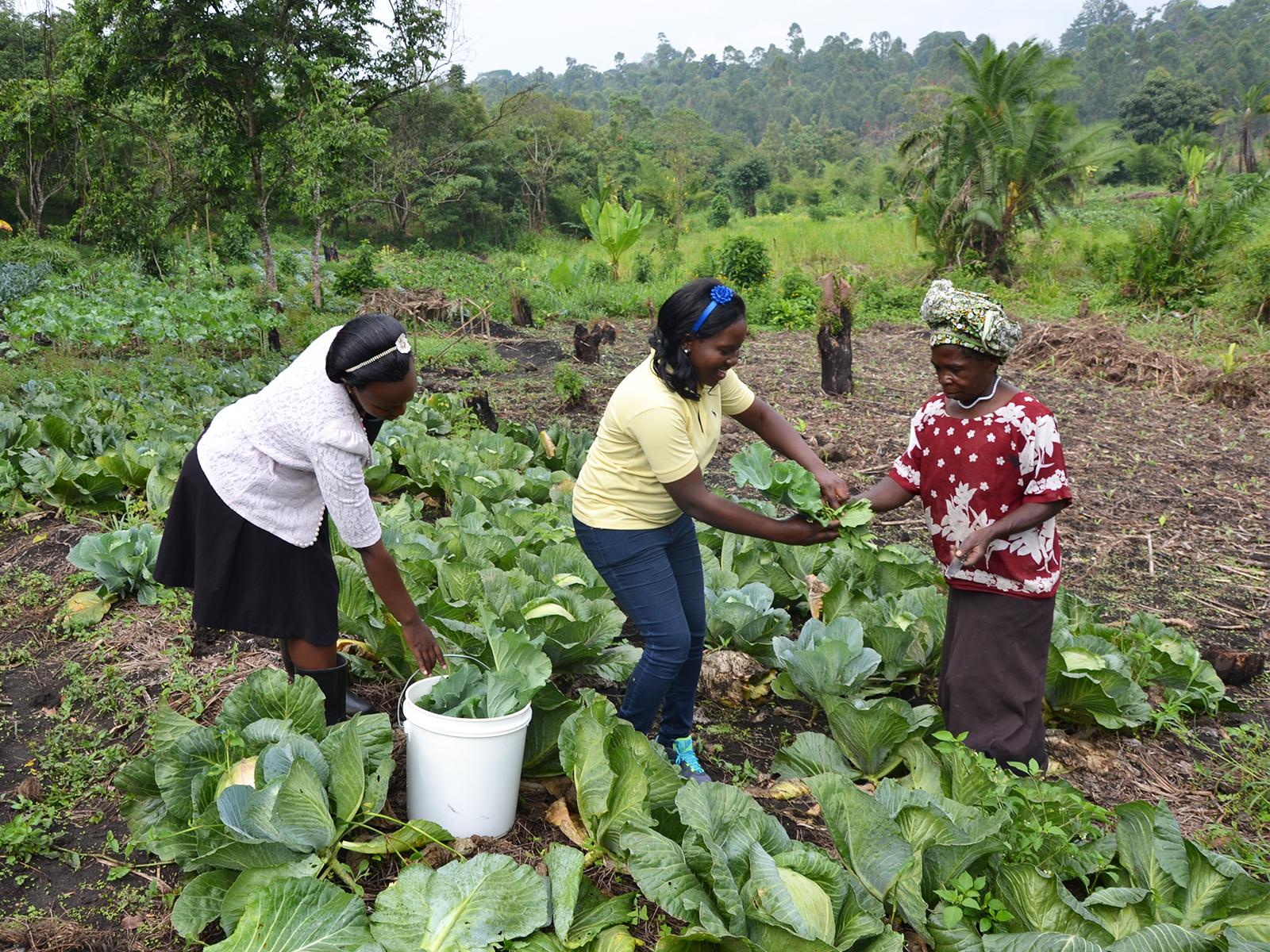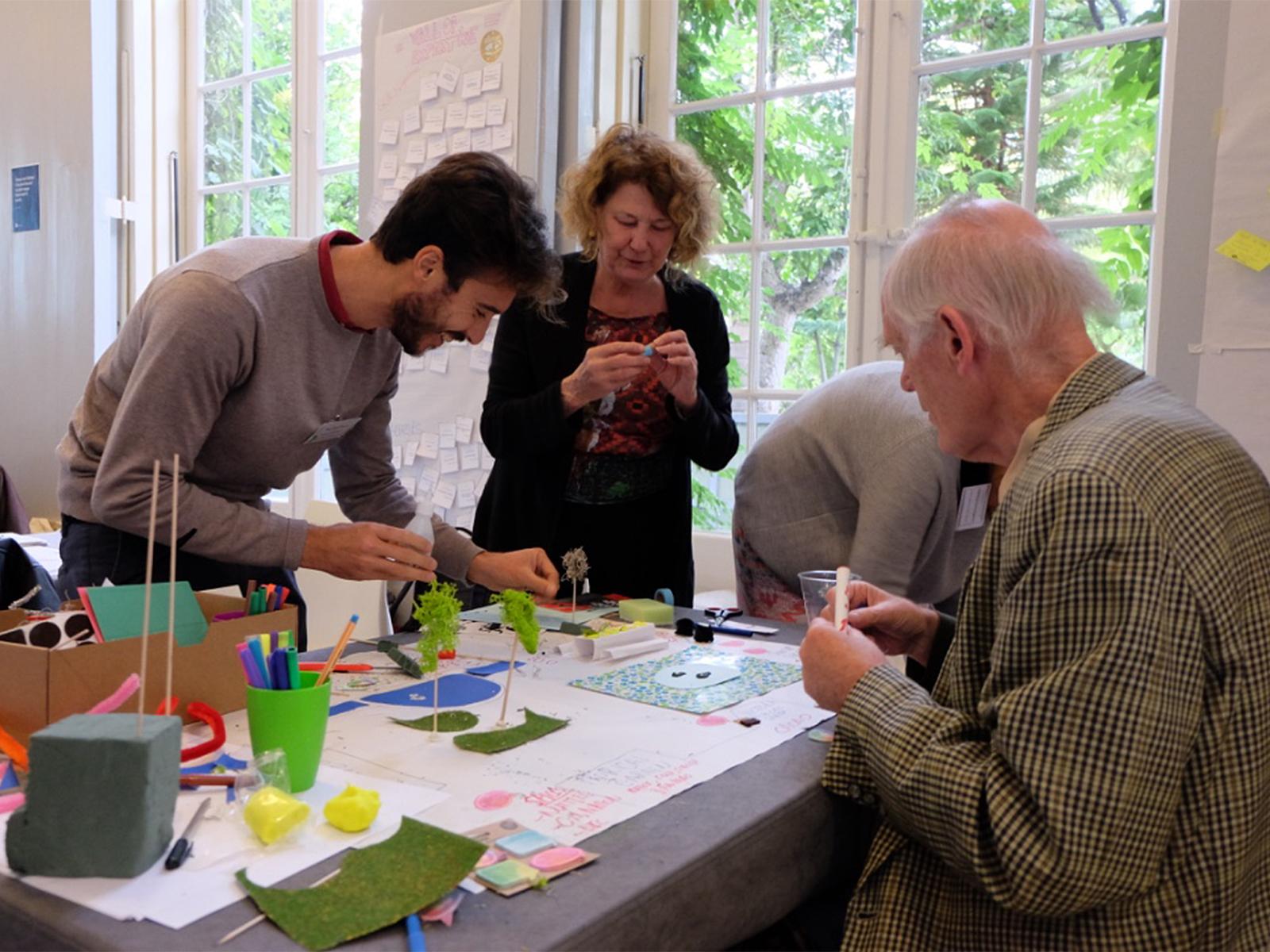Food is one of humanity's primary needs—something that connects everyone. Because our food touches on almost all the social and environmental issues of our time, it's one of the most complex subjects you can broach. Food security, meaning sufficient amounts of nutritious food for a growing world population, is one of the greatest challenges our generations will face.
With the project Big Picnic, Waag, along with 15 botanical gardens in Europe and Uganda, will work to make the issue of food security more accessible for the general public. But what is food security? And why is it so important? During the kick-off of Big Picnic, together with the botanical gardens, we tried to capture the concept of 'food security':
The production process: from farm to plate
The way food is produced affects the availability and quality of our food. This process includes choices made about managing (botanical) diseases; export and trade; and the needs of the global, regional, and local communities.
When grown in a monoculture, crops are susceptible to various diseases that are often controlled by pesticides. If we want to avoid these substances in our food, we will have to look for alternative ways to keep crops strong and healthy. The agricultural trade also plays a role. In Uganda, for example, large corporations cultivate tea for export on fertile agricultural land, which is at odds with growing enough food for the Ugandan population.
Conservation: preservation and ownership
The preservation of seeds, crops, and the areas in which crops can develop is also crucial to the future of food security. What we're talking about here includes questions about ownership of seeds, DNA manipulation, and even ownership of nature in general.
Under EU law, nature cannot be owned. But these boundaries have been stretched before. Is a genetically modified crop part of nature? Or are the seeds owned by the person who manipulated the DNA? It's important to remember that while there are about 350,000 different types of flowering plants, only around 7,000 have been cultivated. And just 12 of these are responsible for about 80% of global food consumption! We've become dependent on a very small amount of crops. One false move means disaster on a global scale.
Durability: long-term thinking
The way food is grown, processed, and consumed must be designed so that it has a lasting effect on the quality and quantity of the food for generations to come. Important factors include: urbanization, (genetic) modification, climate change, and technology. The solution for today is not yet the solution for tomorrow—constant development in technological and scientific research is needed to maintain and enhance crops to keep up with current population growth.
Access: availability and quality
Sufficient amounts of quality food should be available and accessible to those who need it. And so too should the knowledge about the production, conservation, and sustainability of food. We're talking about issues concerning price differences between fresh and processed foods, and the relationships between the the consumer's social and cultural environment and their access to food.
Calorie-rich, processed foods are getting cheaper and easier to procure than fresh, unprocessed fruits and vegetables. There is a disconnect between economic value, degree of operation, and number of calories. This is also an important factor in the global increase in obesity. The public is often not aware of these issues and cannot express their opinions or voice concerns to the parties who control food production and trade.
Botanical Gardens
Food security is a complex concept to get one's head around. In the project Big Picnic, Waag will be working on this issue with fifteen botanical gardens. By uniting in this project these botanical gardens have opted to take a leading role in the debate about "food security”.
Botanical gardens have been collecting and studying plants for centuries and often serve as a place where one can access nature and find tranquility in a hectic urban environment. Traditionally, botanical gardens are introverted institutions with a narrow, plant-oriented audience. But, increasingly, botanical gardens are becoming pioneers in local communities worldwide. For example, they often support local communities in growing their own food and encourage students to become actively involved in their programs.
Waag's place at the picnic
Within the Big Picnic project, Waag will mainly deal with the transfer of co-creation methods and applications. Waag will guide the botanical gardens in exploring and applying these methods to find new connections with the public. Through a combinations of specialized pointers and training, the gardens will be able to shape interaction and exchange knowledge with the public and other partners. Read more about the co-creation goals of this project here.


